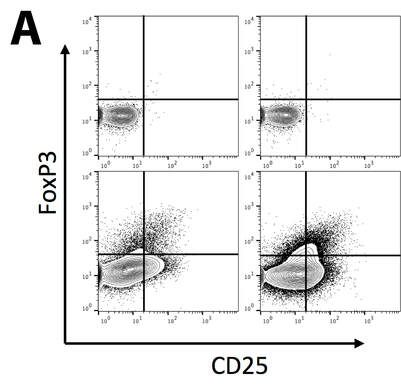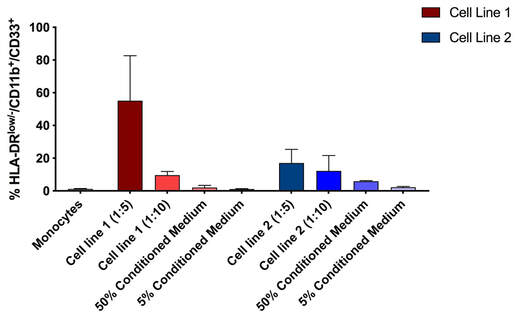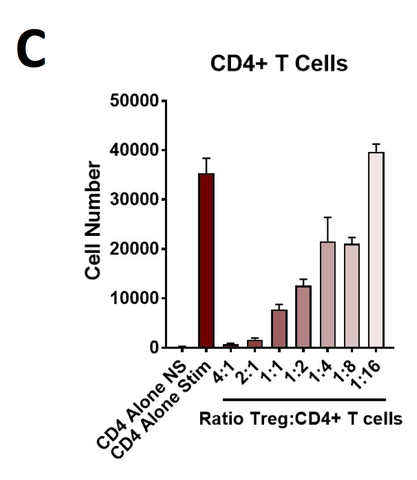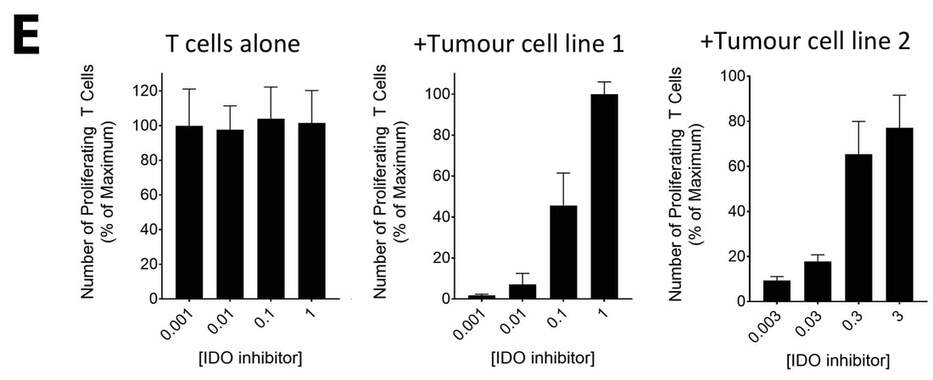Home > Immunology Assays > Suppression Assays
Assays for measuring suppression of T cell proliferation by regulatory T cells, tumour cells and myeloid-derived suppressor cells (MDSCs)The tumour microenvironment contains multiple suppressive cell types (including regulatory T cells and myeloid-derived suppressor cells) that can prevent an immune response. Conversely in autoimmune and inflammatory diseases, these cells may be defective, or, it may be beneficial to boost their function or numbers.
Celentyx offers a range of assays for studying the function of regulatory T cells or suppressive myeloid cells, both in terms of phenotypic induction by measuring by FOXP3 expression (A, regulatory T cells) or surface marker expression (B, myeloid-derived suppressor cells), or by functional assays (C, regulatory T cells; D, myeloid-derived suppressor cells). These flow-cytometric assays can be performed in plate-based formats for screening with human primary cells from healthy donors or from patients. Finally tumour cells themselves can be highly suppressive through a variety of mechanisms (E) Assays may be suitable for evaluating modulators of Arginase, CD28, CD39, CD73, CD80, CD86, CTLA-4, Fas, FasL, GITR, IDO, LAG-3, PD-1, PDL-1, PDL-2, TGFb, TIGIT, TIM-3, and others.
|
Further Immunology Assays
B Cells Haemolysis Testing Human Microglia Macrophages/Monocytes Neutrophils/Granulocytes Phagocytosis Assays Regulatory T cells Spheroid Killing Assays T Cell Activation Assays T Cell Exhaustion Assays Tumour infiltrating lymphocyte (TIL) and dissociated tumour cell assays Tumour Cell Killing Assays |






